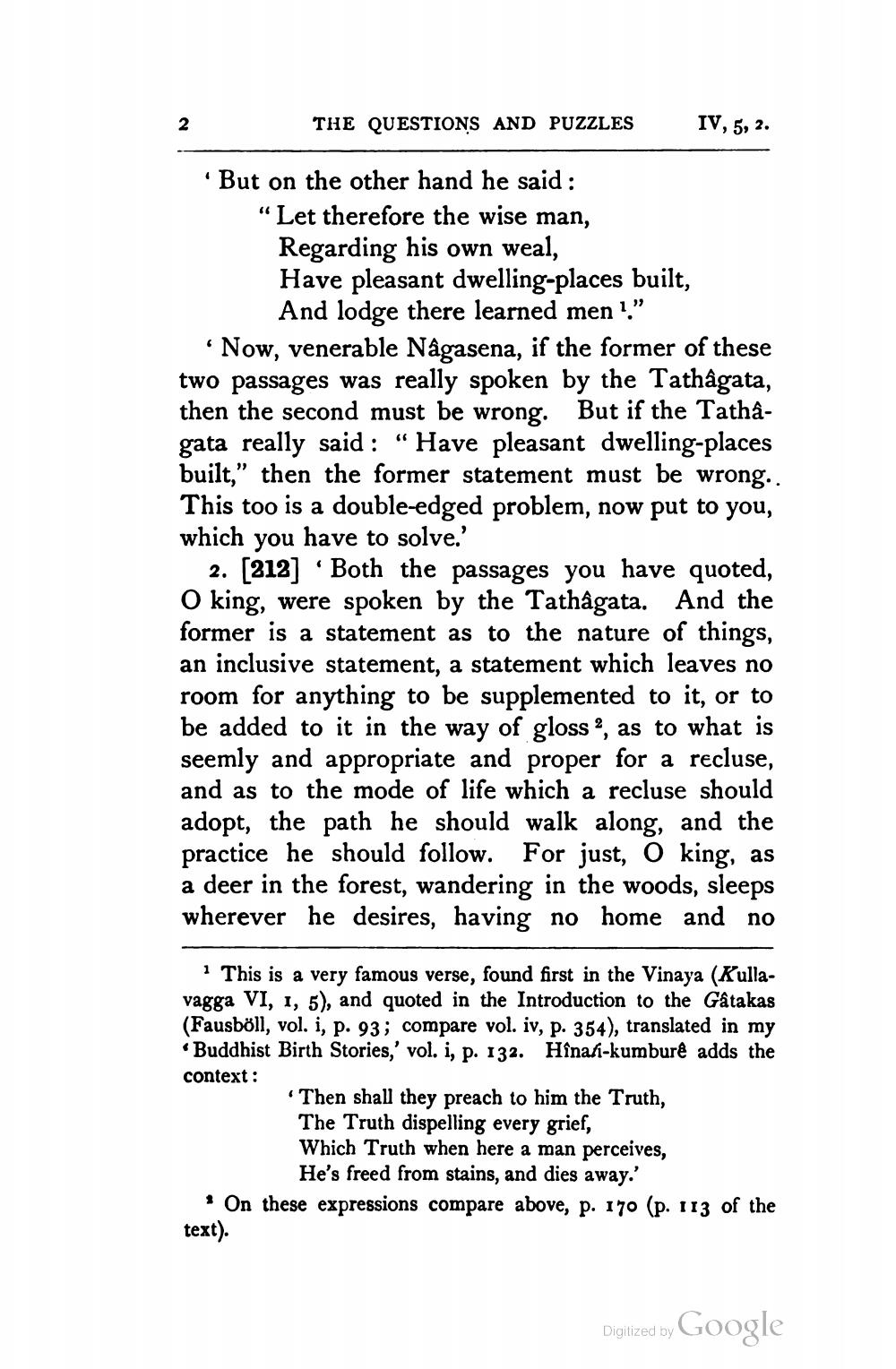________________
THE QUESTIONS AND PUZZLES
IV, 5, 2.
But on the other hand he said : “Let therefore the wise man,
Regarding his own weal, Have pleasant dwelling-places built,
And lodge there learned men ?." Now, venerable Nâgasena, if the former of these two passages was really spoken by the Tathagata, then the second must be wrong. But if the Tathâgata really said: "Have pleasant dwelling-places built," then the former statement must be wrong.. This too is a double-edged problem, now put to you, which you have to solve.'
2. [212] · Both the passages you have quoted, O king, were spoken by the Tathagata. And the former is a statement as to the nature of things, an inclusive statement, a statement which leaves no room for anything to be supplemented to it, or to be added to it in the way of gloss?, as to what is seemly and appropriate and proper for a recluse, and as to the mode of life which a recluse should adopt, the path he should walk along, and the practice he should follow. For just, o king, as a deer in the forest, wandering in the woods, sleeps wherever he desires, having no home and no
1 This is a very famous verse, found first in the Vinaya (Kullavagga VI, 1, 5), and quoted in the Introduction to the Gatakas (Fausböll, vol. i, p. 93; compare vol. iv, p. 354), translated in my
Buddhist Birth Stories,' vol. i, p. 132. Hînafi-kumburê adds the context:
• Then shall they preach to him the Truth,
The Truth dispelling every grief, Which Truth when here a man perceives,
He's freed from stains, and dies away.' * On these expressions compare above, p. 170 (p. 113 of the text).
Digitized by Google




